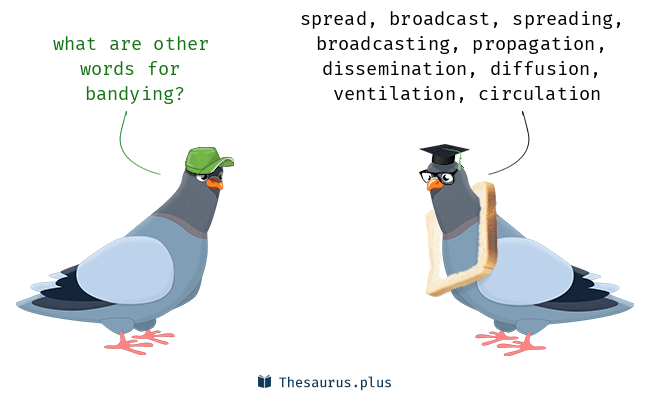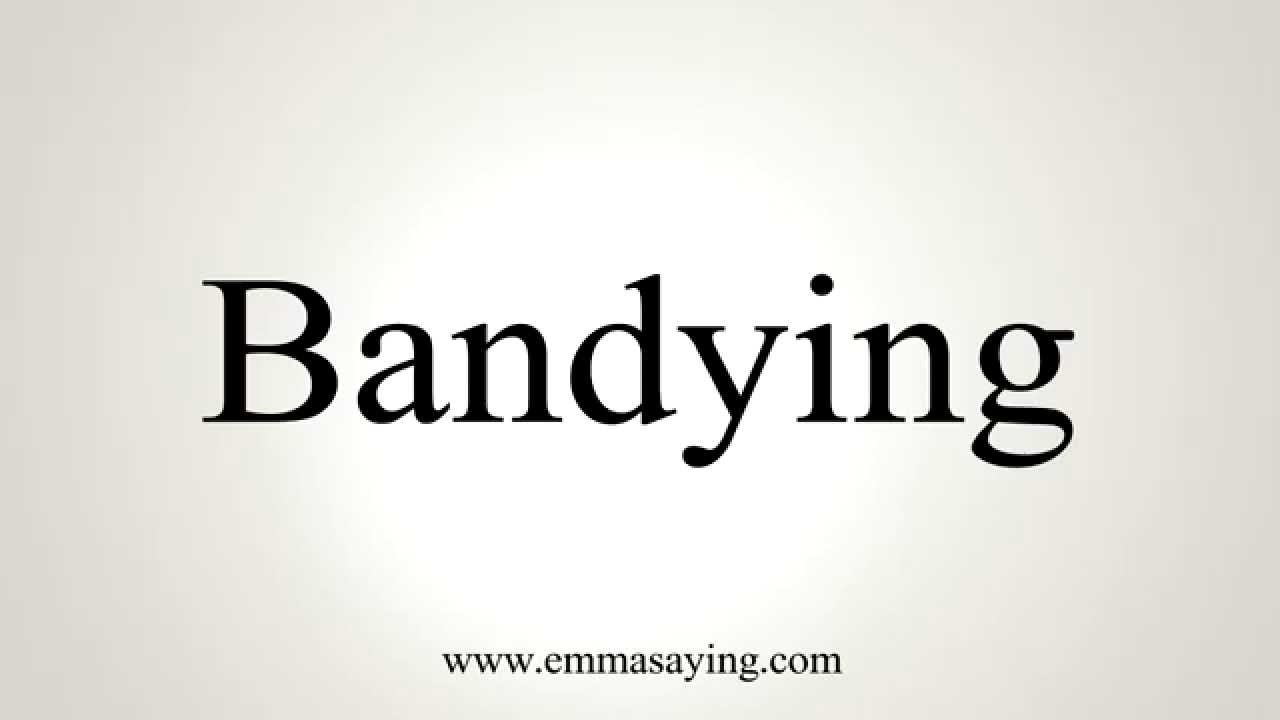
verb (used with object), ban·died, ban·dy·ing.
- to pass from one to another or back and forth; give and take; trade; exchange: to bandy blows; to bandy words.
- to throw or strike to and fro or from side to side, as a ball in tennis.
- to circulate freely: to bandy gossip.
adjective
- (of legs) having a bend or crook outward; bowed: a new method for correcting bandy legs.
noun, plural ban·dies.
- an early form of tennis.
- Chiefly British. (formerly) hockey or shinny.
- Obsolete. a hockey or shinny stick.
adjective -dier or -diest
- Also: bandy-legged having legs curved outwards at the knees
- (of legs) curved outwards at the knees
- knock someone bandy Australian informal to amaze or astound
verb -dies, -dying or -died (tr)
- to exchange (words) in a heated or hostile manner
- to give and receive (blows)
- (often foll by about) to circulate (a name, rumour, etc)
- to throw or strike to and fro; toss about
noun plural -dies
- an early form of hockey, often played on ice
- a stick, curved at one end, used in the game of bandy
- an old form of tennis
1570s, “to strike back and forth,” from Middle French bander, from root of band (n.2). The sense apparently evolved from “join together to oppose,” to opposition itself, to “exchanging blows,” then metaphorically, to volleying in tennis. Bandy (n.) was a 17c. Irish game, precursor of field hockey, played with curved a stick (also called a bandy), hence bandy-legged (1680s).
 Liberal Dictionary English Dictionary
Liberal Dictionary English Dictionary


